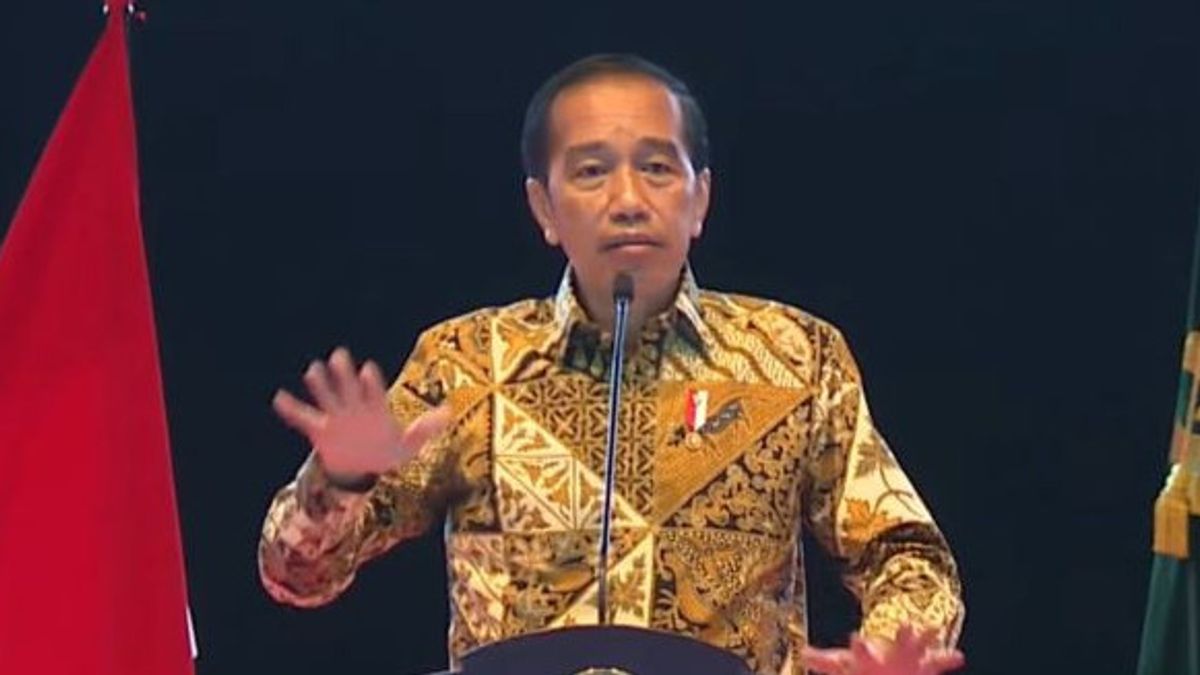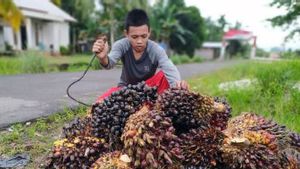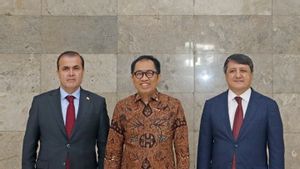JAKARTA - The Indonesian government is increasingly determined in establishing industrial downstreaming in Indonesia. After banning nickel exports, President Joko Widodo plans to ban tin and bauxite exports this year. President Joko Widodo (Jokowi) revealed that the government wants to build a downstream industry for the two minerals in the country so that the added value can be absorbed domestically.
He believes that by stopping the export of the two minerals, Indonesia's income can increase by up to 20 times. "After nickel, this year we will stop exporting tin and bauxite," said Jokowi at the National Silatnas and 19th Anniversary of the Army Retired Army Association, Friday, August 5.
He explained, when Indonesia was still exporting nickel raw materials abroad, Indonesia pocketed Rp. 15 trillion per year, but when exports of raw materials were stopped, Indonesia was able to reap profits of up to Rp. 300 trillion in 2021.
"That's just one commodity. From Rp. 15 trillion, it jumped to Rp. 300 trillion, up 20 times. Until we are sued by the WTO and the case is not finished until now, I will face it," he said.
Jokowi emphasized that the lawsuit Indonesia is currently facing at the World Trade Organization (WTO) regarding the ban on raw nickel exports will not discourage the government from stopping exports of raw material mining.
With the cessation of raw material mining exports, the President believes that Indonesia will also get many benefits, including an increase in the value of domestic investment, including capital flows from abroad.
Previously, the Minister of Investment/Head of the Investment Coordinating Board (BKPM) Bahlil Lahadalia said the government would ban the export of bauxite and tin this year as an effort to build mineral downstreaming. renewable and environmentally friendly energy.
"We from the Ministry of Investment translate the economic transformation through downstreaming with a natural resource management approach. Nickel, we will stop. Bauxite will soon be stopped. In 2022 we will stop bauxite and in late 2022 we will also stop tin exports," he said.
According to Bahlil, the cessation of mineral exports will encourage downstreaming which will provide maximum added value for the country. He said that the nickel export ban imposed by the government has been proven to actually increase exports of nickel derivative products, namely stainless steel.
"What happens, in 2022, our exports of nickel products are only 2 billion US dollars. And in 2022, downstream exports of stainless steel, it has reached 20 billion US dollars," he said.
The English, Chinese, Japanese, Arabic, and French versions are automatically generated by the AI. So there may still be inaccuracies in translating, please always see Indonesian as our main language. (system supported by DigitalSiber.id)













